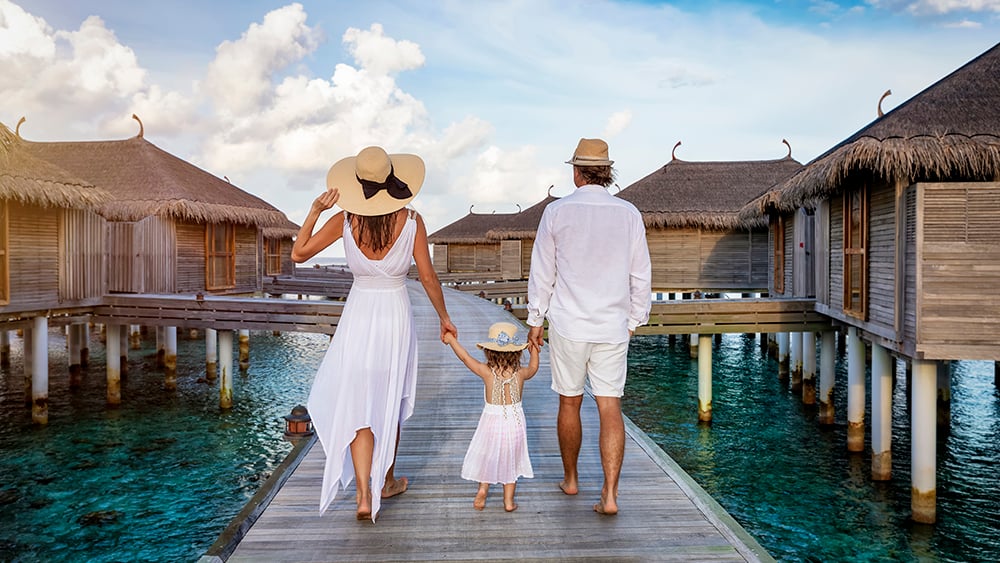Luxury travel is no longer just about five-star hotels and champagne toasts at sunset. It’s a world where experiences reign supreme, and travelers seek unique, tailored adventures that reflect their values and aspirations. In this deep dive, we’ll explore the vacation and planning habits of luxury travelers, drawing from recent research, personal stories, and a sprinkle of humor to uncover what makes this market tick. Whether you’re a travel enthusiast dreaming of a private island getaway or a business looking to tap into this lucrative segment, this article is your guide to understanding the modern luxury traveler.
Who Are Today’s Luxury Travelers?
Luxury travelers aren’t just the ultra-wealthy sipping martinis on private jets. Recent studies show they’re a diverse group, spanning generations, income levels, and motivations. Defined as those spending $500 or more per night on lodging or taking multiple high-end trips annually, luxury travelers include millennials, Gen Z, and baby boomers, each with distinct preferences.
A Younger, More Diverse Crowd
Gone are the days when luxury travel was exclusive to older, affluent individuals. The median age of a luxury traveler is now 46, with 53% having children under 18 at home, compared to 35% for other travelers. Millennials and Gen Z are driving growth, with 80% of millennials planning substantial trips and 72% of Gen Z spending as much or more than pre-COVID levels.
Cultural and Ethnic Diversity
Luxury travelers are also more diverse in ethnicity. For instance, 10% of luxury travelers in the U.S. identify as Hispanic, compared to 7% of other travelers, while fewer Asians fall into this category (9% vs. 13%). This diversity shapes their preferences, with a growing demand for culturally immersive experiences.
How Luxury Travelers Plan Their Vacations
Planning a luxury vacation is an art form, blending meticulous research with a desire for exclusivity. Unlike mass-market travelers, luxury travelers prioritize personalization and are willing to invest time and money to craft their dream experiences.
Embracing Technology and Travel Advisors
While 83% of luxury travelers use the internet for planning, 40% still rely on travel agencies for curated experiences. High-end travel advisors are making a comeback, offering expertise on destinations, safety guidelines, and bespoke itineraries. For example, a friend of mine, Sarah, planned a private safari in Tanzania through a luxury travel agency. The advisor secured exclusive access to a remote lodge, complete with a personal chef who catered to her vegan diet—a level of customization she couldn’t have achieved on her own.
The Rise of Online Booking Platforms
Online platforms like TripAdvisor and Black Tomato are game-changers, offering seamless booking and personalized itineraries. These platforms cater to tech-savvy travelers who want convenience without sacrificing exclusivity. For instance, 46.3% of luxury travel bookings in 2024 were made online, reflecting a shift toward digital solutions.
Social Media as a Planning Tool
Here’s where things get interesting (and a bit amusing). A staggering 77% of luxury travelers choose destinations based on social media, chasing those “Instagrammable” moments. Picture a heart-shaped floating breakfast tray in a Maldives villa or a private tour of the Vatican—perfect for the ‘Gram. Social media influencers and platforms like Instagram shape decisions, making visually stunning locations a priority.
What Luxury Travelers Want from Their Vacations
Luxury travelers aren’t just booking trips; they’re curating experiences that align with their values, from authenticity to sustainability. Let’s break down their top priorities.
Unique and Authentic Experiences
Today’s luxury traveler craves authenticity over opulence. They want to connect with local cultures, whether through a market tour in Tokyo or a private cooking class in Tuscany. According to a Skift survey, 65% of luxury travelers prioritize experiencing something new over relaxation. My cousin, Mark, once joined a private guided tour in Peru, learning to weave textiles with indigenous artisans—a memory he cherishes more than any hotel stay.
Personalized and Private Vacations
Customized vacations dominate, accounting for over 27% of the luxury travel market in 2024. Travelers seek tailored itineraries, private transportation, and VIP access. For example, private island retreats and bespoke safaris are top choices for those wanting exclusivity.
Wellness and Sustainable Travel
Wellness is a major driver, with 61% of high-net-worth individuals prioritizing health-focused trips. Think forest bathing in Japan or cold-water therapy retreats inspired by Wim Hof. Sustainability is also key—67% of Gen Z and 64% of millennials prefer eco-friendly options, like luxury eco-lodges near the Great Barrier Reef.
Bucket List Adventures
Adventure and safari trips are surging, with a projected CAGR of 8.8% through 2035. Luxury travelers are ticking off bucket list items like skydiving, mountain climbing, or wildlife safaris. Baby boomers, in particular, are drawn to these experiences, with 54% planning trips in 2021 alone.
Comparing Luxury Travel Segments
To understand the luxury travel market, it’s helpful to compare its key segments. Below is a table highlighting popular types of luxury travel and their appeal.
| Travel Type | Key Features | Target Audience | Growth Rate (CAGR) |
|---|---|---|---|
| Customized & Private Vacations | Tailored itineraries, private transport, VIP access | High-net-worth individuals | 8.8% (2024-2035) |
| Adventure & Safari | Thrilling experiences, exotic locations | Millennials, Gen Z | 8.2% (2025-2030) |
| Cruise/Ship Expedition | Luxury vessels, bespoke services | Baby boomers, families | 7.9% (2024-2035) |
| Culinary Travel & Shopping | Gastronomy, retail therapy | Aspiring luxury travelers | 6.6% (2024-2032) |
Pros and Cons of Luxury Travel Types
- Customized & Private Vacations
- Pros: Highly personalized, exclusive access, flexible itineraries.
- Cons: Higher costs, requires extensive planning.
- Adventure & Safari
- Pros: Thrilling and unique, connects with nature.
- Cons: Physically demanding, potential safety risks.
- Cruise/Ship Expedition
- Pros: All-inclusive, scenic routes, diverse dining.
- Cons: Less flexibility, potential for overcrowding.
- Culinary Travel & Shopping
- Pros: Culturally immersive, appeals to foodies.
- Cons: Can be expensive, less focus on adventure.
SEO Strategies for Attracting Luxury Travelers
For businesses aiming to capture this market, SEO is critical. Luxury travel SEO requires a nuanced approach, targeting high-intent keywords and building trust through authoritative content.
Targeting High-Intent Keywords
Focus on long-tail keywords like “private island holidays” or “bespoke safari tours” to attract affluent travelers. Tools like Semrush or Ahrefs can help identify niche keywords with high ranking potential. Avoid broad terms like “luxury holidays,” which are dominated by mainstream brands like TUI.
Building Trust with Content
High-quality content, like virtual tours or detailed blogs about exclusive destinations, builds credibility. For example, a blog about “The History of French Chateaux” can attract history-loving high-net-worth individuals. Pair this with glowing testimonials and rich snippets to boost SERP rankings.
Leveraging Social Media
Since social media drives 77% of luxury travel decisions, brands should create visually stunning content for platforms like Instagram. Highlight unique amenities—think butler service at The Lanesborough or a private hot tub on a cruise ship suite.
People Also Ask (PAA) Section
Below are real questions from Google’s PAA section, answered concisely to align with search intent.
What defines luxury travel?
Luxury travel involves high-end experiences, personalized services, and exclusive access, often costing $500+ per night. It prioritizes authenticity, privacy, and unique adventures.
How do luxury travelers plan their trips?
They use a mix of online platforms (83%) and travel advisors (40%) to curate bespoke itineraries, often influenced by social media and reviews.
What are the top luxury travel destinations?
Popular destinations include Europe (France, Italy), North America (U.S. national parks), and Asia (Maldives, Japan). Private islands and eco-lodges are trending.
Where can I book luxury travel experiences?
Try online platforms like TripAdvisor, Black Tomato, or luxury travel agencies like Abercrombie & Kent.
FAQ Section
1. What motivates luxury travelers to book trips?
Luxury travelers seek unique, authentic experiences, privacy, and cultural immersion. They’re driven by bucket list adventures, wellness, and social media influence.
2. Are millennials really dominating the luxury travel market?
Yes, millennials are a key segment, taking 4.4 trips annually and prioritizing cultural experiences. They’re often “aspiring luxury” travelers, spending less per day than older counterparts.
3. How important is sustainability in luxury travel?
Sustainability is critical, with 67% of Gen Z and 64% of millennials preferring eco-friendly options like luxury eco-lodges or sustainable retreats.
4. What’s the best tool for planning a luxury vacation?
Online platforms like TripAdvisor or Black Tomato offer convenience, while luxury travel advisors provide personalized expertise.
5. How can businesses attract luxury travelers?
Focus on SEO with niche keywords, create high-quality content, and leverage social media to showcase unique experiences and amenities.
Conclusion: The Future of Luxury Travel
Luxury travel is evolving, driven by younger, diverse travelers who value experiences over extravagance. From private island retreats to sustainable safaris, these travelers seek authenticity, personalization, and wellness. For businesses, the key is to blend digital innovation with human expertise, using SEO and social media to connect with this discerning audience. As I reflect on my own travels—like a serene yoga retreat in Bali that felt like a reset for my soul—I’m reminded that luxury is about creating memories that linger long after the trip ends. So, whether you’re planning your next adventure or building a brand to attract high-end clients, tap into what makes luxury travelers tick: the promise of something extraordinary.






